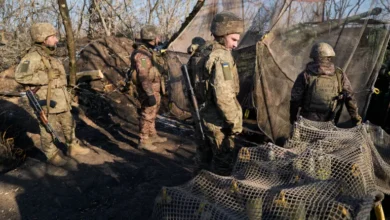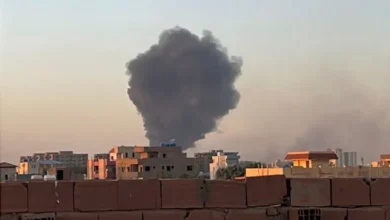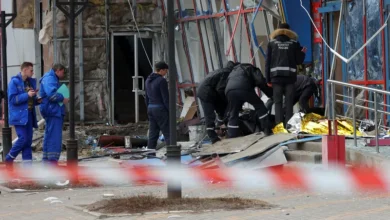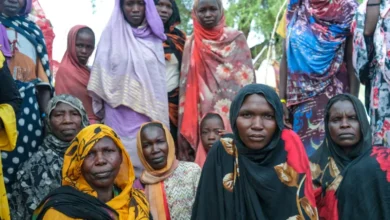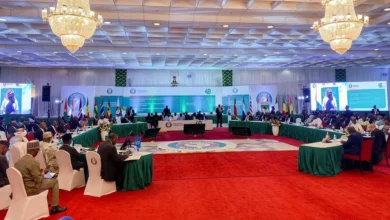Few customers but plenty of cash?: N Korean restaurants remain open in Laos
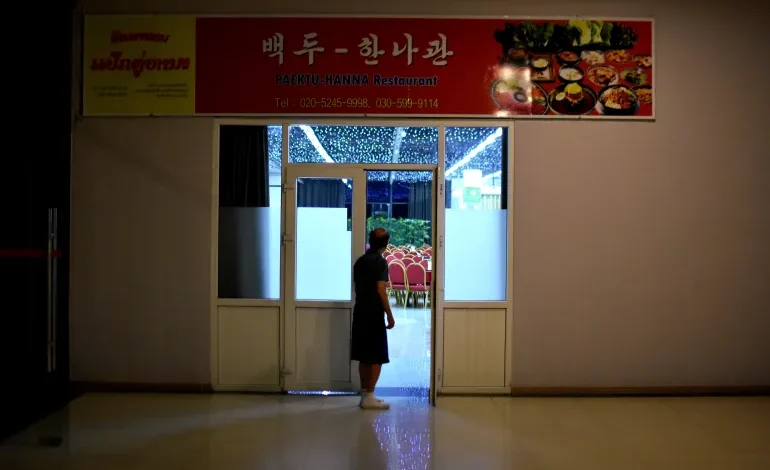
In the lobby of a high-rise condominium block, residents meander past a banquet hall on their way to the lifts as a cover of Harry Nilsson’s 1971 hit Without You reverberates from the restaurant.
The sign gives little away and when asked, residents say they only know the venue sells “Korean food”.The Paektu Hanna Restaurant in Laos’s capital Vientiane keeps a low profile these days. Named after the mountain in which former Democratic People’s Republic of Korea (DPRK) leader Kim Jong Il was born – according to Pyongyang’s party mythology – it is one of four North Korean restaurants that continue to operate in the Southeast Asian country even though they should have shut their doors long ago.
There were once an estimated 130 North Korean state-run restaurants in big cities across East and Southeast Asia – and even as far afield as Dubai and Amsterdam – offering a choreographed glimpse of life in the repressive state for curious tourists.
Today, only an estimated 17 remain in China, Russia and Laos, plus a single restaurant in the Vietnamese capital Hanoi, operating in violation of United Nations sanctions that came into full force in December 2019.
The outlets once provided a steady stream of revenue for the North Korean regime but their heyday has long passed. When Al Jazeera visited the Paektu Hanna on two occasions in August, only a handful of diners sat in the cavernous hall. On visits to Laos’s three other establishments on various nights, they were faring little better, with few to no customers.While previously serving as nationalistic soft-power vehicles promoting North Korean culture abroad, today, the restaurants in Laos downplay their links to Pyongyang. Their role as cultural envoys diminished and with them generating scant revenue for the regime, their place in North Korea’s overseas business empire has only grown more opaque.
Accompanying this demise are reports of North Korean “IT workers” stationed in China, Russia and Laos. Experts told Al Jazeera that illicit funds generated through cybercrime have become a lifeline for North Korea and that the restaurants may be playing a crucial supporting role.“It would be my number one guess that the restaurants are only there to launder money now,” Joshua Stanton, a lawyer in Washington, DC who helped draft the United States’s North Korea Sanctions and Policy Enhancement Act of 2016, told Al Jazeera.
“And one of the best sources of money that they could be getting is from those IT workers [in Laos]. It would make perfect sense.”On December 22, 2017, the UN Security Council (UNSC) unanimously adopted the most far-reaching sanctions yet against Pyongyang in response to its launch of an intercontinental ballistic missile a month earlier. Security Council Resolution 2397 further restricted trade between North Korea and UN member states. It also called for the closure of North Korean businesses and the repatriation of all workers by December 2019.
But weak compliance, most notably from UNSC permanent members China and Russia, has undermined their effectiveness. China, North Korea’s main patron, has been accused of widespread sanctions violations, including employing up to 100,000 North Koreans across various industries. Russia, a growing ally of Pyongyang, has faced accusations of engaging in weapons deals and hosting 3,000-4,000 North Korean labourers, among them IT and construction workers.
‘More than restaurants’
On paper at least, the Lao government has expressed its commitment to adhering to the sanctions, saying in April 2018 in its mandatory UN implementation report that it had no business ties to Pyongyang and that authorisations for North Korean workers “will expire by the end of 2018 and will not be renewed.”
But in March 2020, Lao foreign ministry officials and a North Korean delegation were photographed being serenaded at the Paektu Hanna Restaurant, as they celebrated signing an “Agreement on Cooperation”.
Laos’s known contingent of North Korean workers is small –100 to 200 according to an RFA report in late 2022 – but the failure to repatriate them and close businesses has been noted in successive Panel of Experts reports for the UN’s 1718 Sanctions Committee, which monitors North Korean sanctions compliance.
Explaining this, Stanton points to the country’s close relationship with Beijing. “Laos borders China, they have very close economic and political relations with China,” he said. “And China does not fundamentally have a problem with North Korea proliferating, it has an interest in preserving North Korea as a bargaining chip.”
The Lao Ministry of Foreign Affairs could not be reached for comment.






